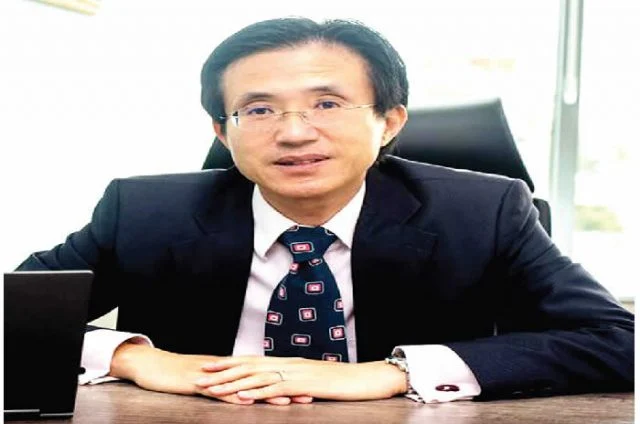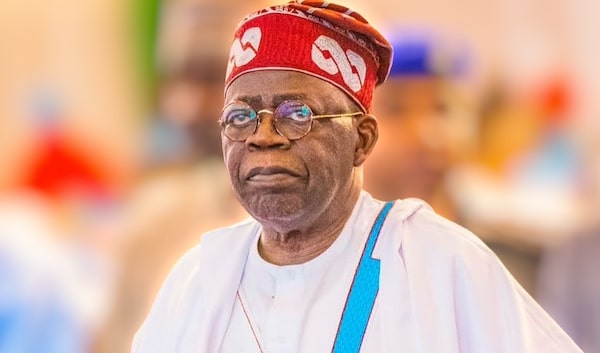The Chief Financial Officer of the Lekki Port, Cai Pingzhen, speaks with ANOZIE EGOLE on the prospects of the multibillion-dollar investment and how it will boost trade, investments and economic growth when operational
At inception, one of the major challenges faced in the execution of the project was the difficulty in reaching financial close. Can you tell us how Lekki Port was able to navigate the tide to achieve financial close for the project?
Lekki Port is the first deep seaport in Nigeria, the first public-private partnership infrastructure project of this scale in Nigeria, and required a significant amount of debt funding. Due to the unique nature of the project and being the first of its kind, recruiting the right debt partners was very essential and surely quite challenging. Several extensive discussions were held between a consortium of Nigerian and international banks and eventually based on the financials of the project and with the support of our majority shareholder, China Harbour Engineering Company, the project was able to get the required debt funding from China Development Bank.
What is the financial infusion of China Harbour Engineering Company Limited into the project that made it a major equity owner?
In2020, China Harbour Engineering Company, a subsidiary of China Communications Construction Company, made an equity investment of $221m in the project for 52.5 per cent ownership in Lekki Port.
In 2019, the company signed a $629m loan agreement with China Development Bank to provide the necessary funding. Can you tell us where we are regarding how much has been disbursed from the first installment of the loan?
Lekki Port has done a total drawdown of $260m from the available facility of $629m till March 2022. The remaining balance of the facility will be utilised when required before the commencement of port operations.
There have been some discrepancies in the figure in the media regarding the equity of the shareholders. Can you please tell us the equity of the shareholders in the project?
China Harbour Engineering Company and Tolaram Group, an international consortium led by Lekki Port Investment Holding Inc, hold 52.5 per cent and 22.5 per cent respectively. This is followed by 20 per cent ownership by the Lagos State Government and five per cent by the Nigerian Ports Authority.
We were told that the project will generate huge revenue for the government both at the state and federal levels. What estimated revenue would the project generate for the Lagos State government and Federal Government for the concession period?
Lekki Port offers a huge potential for growth of the Nigerian economy and estimates that the port will help to generate revenue of $201bn for the Lagos State government and Federal Government of Nigeria through taxes, duties, and royalties over the concession period of 45 years. The qualitative impact on the Nigerian economy would be even far greater, making Nigeria the transshipment hub of West Africa.
No doubt, the project is poised to transform the Nigerian economy. Can you tell us, in financial terms, the economic impact of the project?
Lekki Port will have an estimated aggregate impact of approximately $361bn. Revenue to state and federal agencies for $201bn, $2bn to be spent on employee salaries, and direct an induced business revenue impact of $158bn over the concession period of 45 years. Also, it is expected to generate approximately 170,000 jobs. The project offers a multiplier effect of more than 230 times.
Given that the master concessionaire, Lekki Port Lekki Free Trade Zone Enterprise Limited, has been given a 45-year concessional right on a Build, Operate, Own, and Transfer basis, do you consider the promoter recouping its investment within that time frame?
The promoters of the project are confident that the 45-year concession period would be sufficient to generate a satisfactory return on the investment. There are various factors that gives this confidence to the promoters. The burgeoning Nigerian economy, federal and state governments’ support for the project, the capacity constraints at the existing ports of the country coupled with the rising demand, the huge potential of becoming a transshipment hub for West Africa thereby regaining the business lost to ports of neighboring countries, experienced container terminal sub concessionaire – Lekki Freeport Terminal, a subsidiary of CMA CGM, among others.
Do you see the project enjoying sufficient financial flows from its commercial operations to service the debt according to the payment schedule?
The debt facility has been obtained for 15 years with a moratorium period of four years. The repayment will be over a time span of 11 years under a graduated payment plan. As per the project’s financial projection, the revenue from operations will be sufficient to service the debt.
With the African Continental Free Trade Agreement coming on stream soon, to what extent do you see the completion of Lekki Port assisting Nigeria to become a regional manufacturing hub?
Lekki Deep Sea Port, a multi-purpose deep seaport in Lagos, will be one of the most modern ports in West Africa offering enormous support to the burgeoning commercial operation across Nigeria and the entire African region.
Upon completion, Lekki Port will ease import and export in Nigeria and will boost intra-African trade. It will also promote cooperation between African states. Lekki Port brings to Nigeria the golden opportunity to regain maritime business lost to ports of Lome, Abidjan, and Accra.
A MUST TO READ BELOW
For your Advert Placement, Publicity, Press Release, Personality Promotion, Special Report, Featured story, Conference, Interviews, And So On – CONTACT US on WhatsApp/Call📞@ 08072633727 📲
NOTE: We wish to add you to our WhatsApp Database to get our Trending, latest and timely news directly into your WhatsApp Box as the news breaks.




